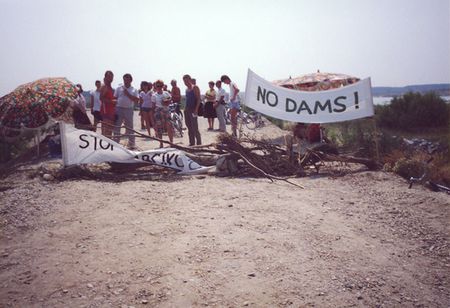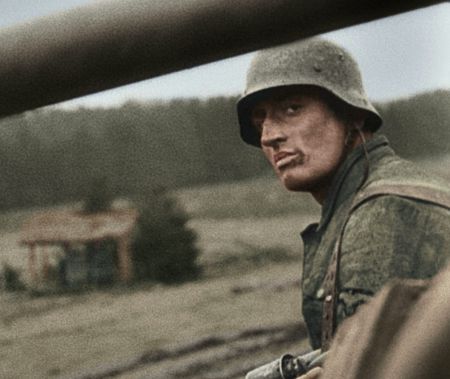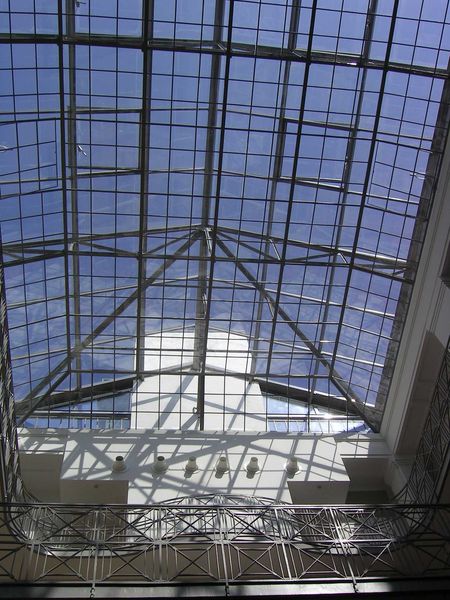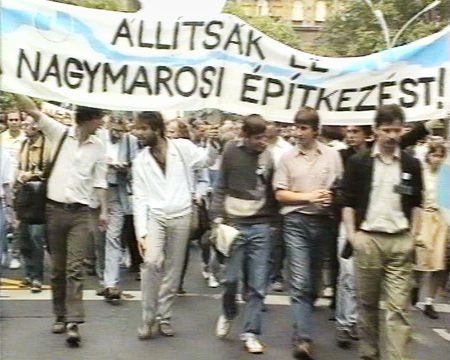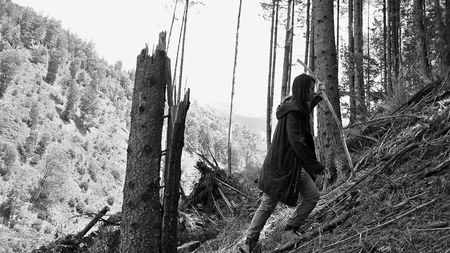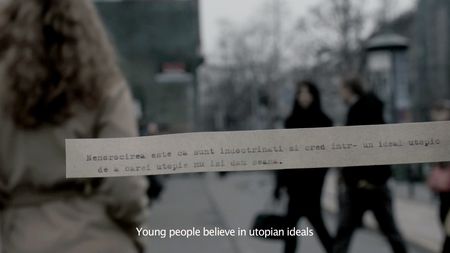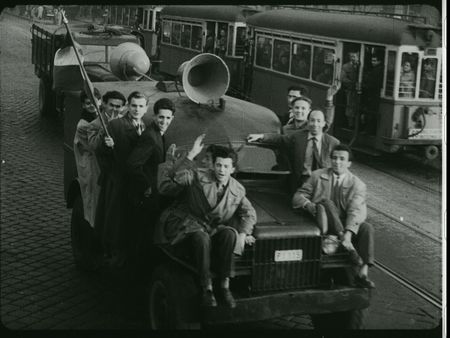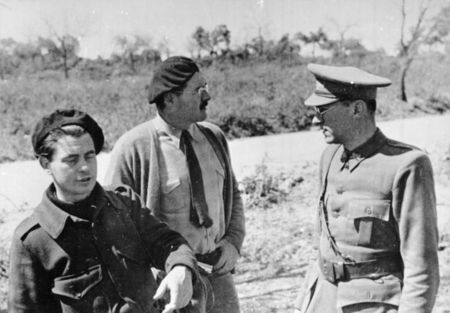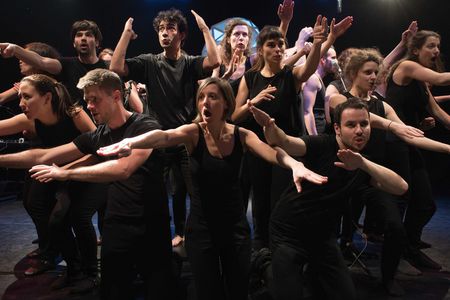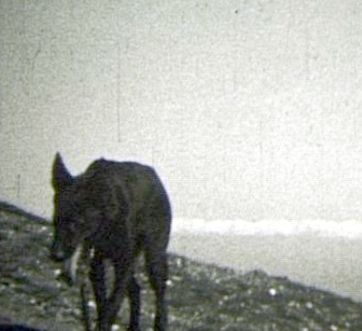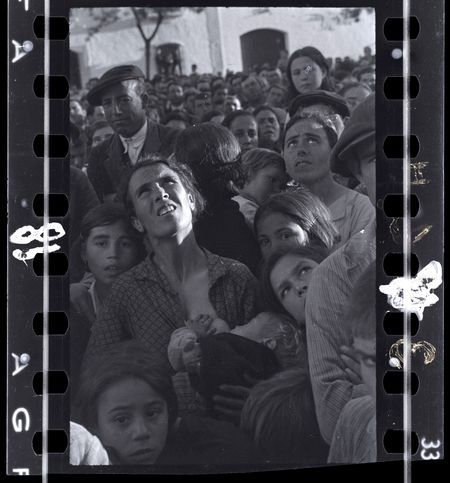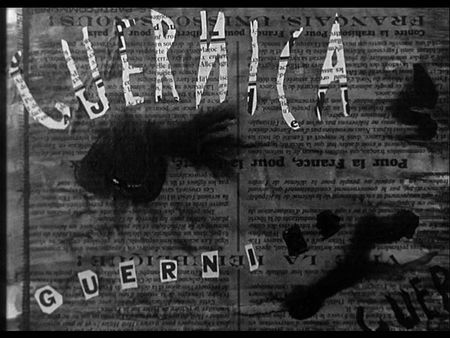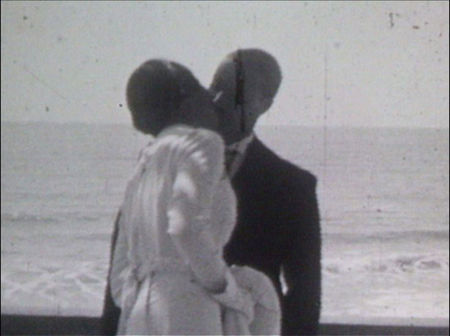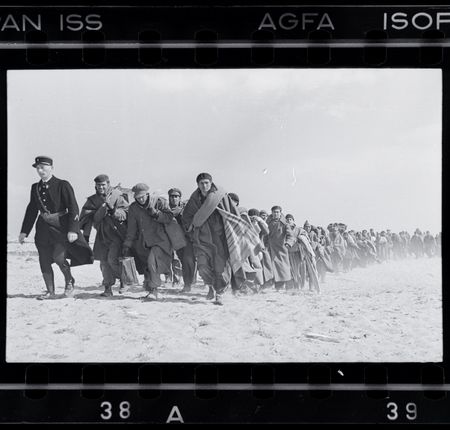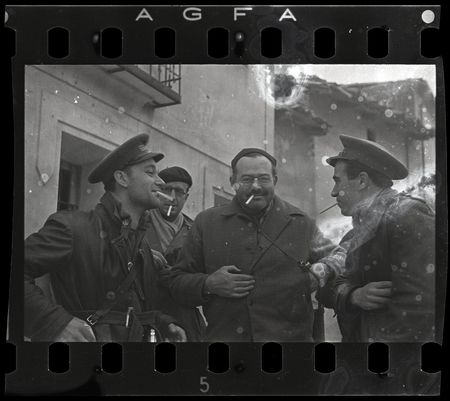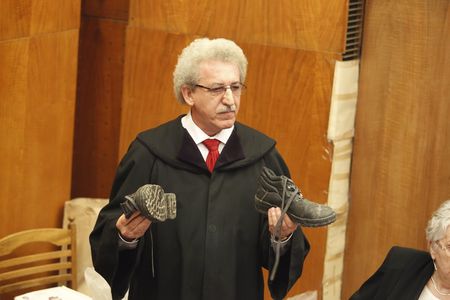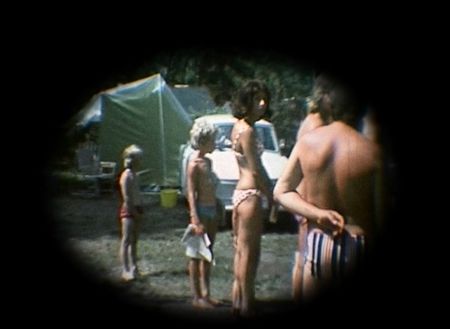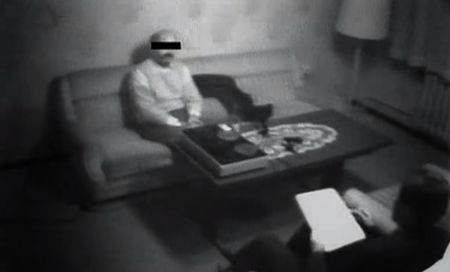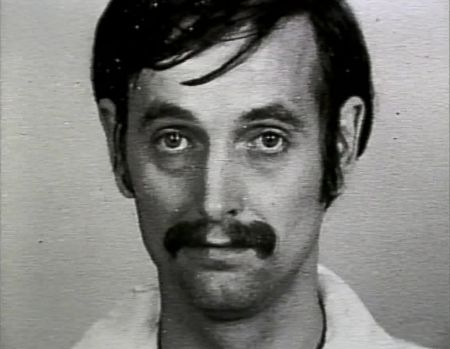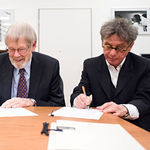Vera and Donald Blinken Open Society Archives
Press Room
Thursday, 14 April 2016, 6:30 p.m.
ALEX FISCHER, CEU, School of Public Policy and WWF Switzerland
Political lobbying – how to effectively impact on a policy process
Presentation and talk with Axel Braun
Galeria Centralis of Vera and Donald Blinken Open Society Archives
Arany János utca 32, 1051 Budapest
An event of the POLITICISED LANDSCAPES program.
Wednesday, 13 April 2016, 6:30 p.m.
JÁNOS VARGHA, Founder of Duna Kör
The Danube Case in a Global Context
Presentation and talk with Axel Braun
Galeria Centralis of Vera and Donald Blinken Open Society Archives
Arany János utca 32, 1051 Budapest
An event of the POLITICISED LANDSCAPES program.
The Vera and Donald Blinken Open Society Archives and the French Institute
Invite you to the screening of Hitler's Last Year
a two- part documentary film (52 minutes each) by David Korn- Brzoza
This prime-time documentary returns to the eleven months that preceded Hitler’s defeat and, using archival materials of which much was previously unseen, unveils entire chapters of the war that are largely unknown.
Directed by David Korn- Brzoza
Produced by Cinétévé (Lucie Pastor and Fabienne Servan Schreiber)
Authors: Olivier Wieviorka and David Korn-Brzoza
TUESDAY, 12 APRIL 2016. AT 6 :00 P.M.
Vera and Donald Blinken Open Society Archives
1051 Budapest, Arany János u. 32.
Dehumanization: New approaches to understanding the politics of human nature
6-8 April 2016
International and interdisciplinary conference with historians, scientists, philosophers and artists discussing the phenomenon of dehumanization from roughly the 18th century onwards.
Speakers:
Guido Abbattista, Eyja M. Brynjarsdóttir, Lukas Einsele, Victoria Esses, Friederike Eyssel, Nick Haslam, Carla Lessing, Edouard Machery, Mari Mikkola, Erika Milam, Gerald Posselt, Gunnar Sigvaldason, Magdalena Smieszek, David Livingstone Smith, Johannes Steizinger
Local commentators:
Laszlo Kontler, Andres Moles, Peter Molnar, Prem Kumar Rajaram, Simon Rippon, Natalie Sebanz, Hyaesin Yoon
Organized by: Maria Kronfeldner
Chief Archivist Position
Vera and Donald Blinken Open Society Archives
Starting date: As soon as possible
Application deadline: Open until filled
Full or Part Time: Full -time
Vera and Donald Blinken Open Society Archives at Central European University is inviting applicants to the position of Chief Archivist. OSA (https://www.ceu.edu/unit/osa ) is one of the most important Cold War and human rights archives in the world. OSA, one of the initiators of the Budapest Open Access Initiative, is fully committed to free and open access. OSA is looking for a highly talented, innovative, socially committed and technologically skilled person with foresight and impeccable integrity.
INVITATION to the third event of the POLITICISED LANDSCAPES program
March 30, 2016 6:30 p.m.
Screening of Black Box’s "The Object" (1988) (English subtitles)
Discussion with the Directors, Ádám Csillag and Márta Elbert
Moderated by: Szilvia Nagy
The discussion is in Hungarian.
The screening is part of the POLITICIZED LANDSCAPE series organized in conjunction with the exhibition SOME KIND OF OPPOSITION by Axel Braun.
www.somekindofopposition.org
Blinken OSA Archívum
Arany János utca 32
5051 Budapest
INVITATION to the fourth event of the POLITICISED LANDSCAPES program
Thursday, 31 March 2016, 6:30 p.m.
MAJA AND REUBEN FOWKES
Translocal Institute, Budapest
Walking without Footprints: A Curatorial Perspective
Presentation and Talk with Axel Braun
Vera and Donald Blinken Open Society Archives
1051 Budapest, Arany János u. 32.
Aesthetics and Politics of “Amateur” and “Home” Identities
March 29 /// 5.30 pm /// Blinken OSA Archivum, Arany János u. 32.
Panel discussion and film screenings related to the politics of an “amateur” identity and its relationship with aesthetic experimentation and the concept of “home” as an institutional identity within the context of two case studies: Casa Radio (Radio House Bucharest) and Memorial Houses.
Presentations:
“The origins, history and aims of the Radio House Bucuresti” by Daria Ghiu and Maria Balabas
“Amateur - experimentation and failure in photography” by Nicu Ilfoveanu
Moderators: Irina Botea and Jon Dean
Screenings: General Mood (Irina Botea & Jon Dean) /// Film Postale (Irina Botea & Nicu Ilfoveanu)
Wednesday, 23 March 2016, 6:30 p.m.
Screening of Ádám Csillag’s Film “Dunasaur” (1988) (in Hungarian with English subtitles)
Discussion with director Ádám Csillag and János Vargha, founder of Duna Kör
Moderator: Szilvia Nagy
Friday, 18 March 2016, 6:30 p.m.
TAMARA STEGER
(CEU, Environmental and Social Justice Action Research Group)
What Happened to Environmental Justice?
Transition and Transformation in Central and Eastern Europe
Presentation and talk with Axel Braun
Galeria Centralis of Vera and Donald Blinken Open Society Archives
Arany János utca 32, 1051 Budapest
On the sixtieth anniversary of the Hungarian Revolution of 1956, the Blinken OSA Archives are launching a major series of public projects.
The Archives’ 1956 Digital Repository offers an insight into collections that have never been published or seen before, have been considered lost or have not been accessible to the public so far. Their purpose is to make people think and gain a better understanding of the lessons learned from the Revolution on the basis of these authentic documents.
SOME KIND OF OPPOSITION
An exhibition by Axel Braun, based on films by Ádám Csillag and Fekete Doboz
Galeria Centralis, Vera and Donald Blinken Open Society Archives
Arany János utca 32, 1051 Budapest
Opening: 10 March 2016, 6:30 p.m.
11 March – 1 May 2016, Open Tuesday to Sunday, 10 am - 6 pm, Closed on Mondays
Dance performance and Film Screening
EYES ON SPAIN. SCREENING THE CIVIL WAR MEMORIES
Film series in relation to the Mexican Suitcase Exhibition at the Galeria Centralis (Blinken OSA Archivum) in cooperation with the Embassy of Spain in Budapest and the Cervantes Institute.
Saturday, 20 February, 2016, at 6:30 pm
DANCE Performance by Góbi Rita Dance Company
With Dániel Szabó, Mátyás Regyep, and Gellért Zsédey (trumpet), Lőrinc Kéringer (drums)
Music: Benjamin Britten: Ballad of Heroes (1939), ca. 18’
Spanish Earth (1937), 52’
Documentary directed by Joris Ivens, commentary: Ernest Hemingway, camera: John Fernhout (John Ferno), editing: Helen van Dongen; music: Marc Blitzstein, Virgil Thomson; English
Victoria Harms - Herder Institute for Historical Research on East Central Europe
Road to Redemption:Why West Germans Care(d) about Hungary.
17 February 2016 at 5 pm, Reading Room, Blinken OSA Archivum
Screening the Civil War Memories and Special Performance by SOHARÓZA
Saturday, 13 February, 2016, at 6:30 pm
The Songs of the Spanish Civil War, ca. 15’
music performance by the Choir Soharóza
¡Ay Carmela! (1990), 102’
Comedy-drama, directed by Carlos Saura, 102’
Paulino and Carmela are husband and wife, troubadours touring the countryside during the Spanish Civil War. They are Republicans, and with their mute assistant, Gustavete, they journey into rebel territory by mistake. They are arrested, fear a firing squad, and receive a reprieve from an Italian Fascist commander who loves the theatre. He arranges a performance for his troops, bargaining with Paulino to stage a burlesque of the republic in exchange for the actors' freedom. Will the fiery and patriotic Carmela consent?
Trailer: https://www.youtube.com/watch?v=ggziOiV04Uw
Supported by the Spanish Embassy in Budapest.
Wednesday, 10 February, 2016, at 6:30 pm
El Perro Negro: Stories from the Spanish Civil War (2005), 84’
Documentary, directed by Péter Forgács
El perro negro takes a clichés braking view of the Spanish Civil War trough a mesmerizing found footage collage. The saga begins in 1929 with the talented amateur filmmaker, Joan Salvans, son of a wealthy Catalan industrialist, of Terrassa. The Salvans were the object of admiration as one of the most successful wool manufacturer of Catalonia, but also of hatred by the emerging anarchists and socialist trade unionists. On 24 July 1936, six days after the Civil War broke out; a militant anarchist group led by 'Pedro el Cruel' kills Joan Salvans, filmmaker, and his father Franceso Salvans. A cyclist, not far from their house, finds their bodies 'La Barata'. Just about the same time when Joan's life unfortunately ends, a new saga of the other young clandestine filmmaker, Ernesto Noriega picks up the story line to guide us through his adventures. Throughout the film we travel through Spain's chaotic decade with the images and stories of several amateur filmmakers and their memories focusing on all sides of the front like republicans, anarchists, Communist, and the foreigner Brits, Germans, Italians, Americans, who fought on both side.
Trailer: https://www.youtube.com/watch?v=L4YXQKqdvic&list=PL6C3B458128E718CA&index=2
Introduction and follow up Q&A with Film Director Péter Forgács
Wednesday, 3 February, 2016, at 6:30 pm
Butterfly (La lengua de las mariposas, 1999), 96’
Drama, directed by José Luis Cuerda
Spanish with English subtitles
Veteran director Jose Luis Cuerda delivered this sensitive portrait of a child coming of age during a tense political situation just before the Spanish Civil War. On his first day of school, frail eight-year-old Moncho (Manuel Lozano) is so terrified by the imposing figure of his teacher Don Gregorio (Fernando Fernan Gomez) that he flees into the nearby woods. In spite of his authoritarian appearance, the schoolmaster proves to be a kind, free-thinking Republican who teaches Moncho the virtues of being good. The boy is soon spending much of his time with the elderly Gregorio in the Galician countryside, admiring such wonders of nature as the tongue of a butterfly. However, when the Fascists roll into town, the boy's life changes forever. La Lengua de las Mariposas was screened at the 1999 San Sebastian Film Festival.
Supported by the Spanish Embassy in Budapest.
The Visual Studies Platform and the Blinken Open Society Archives presents
The visual politics of gesture
Civilian victims and the imagery of the Spanish Civil War
Public talk by Sonia García López
January 26, 2016 /// 5.30 pm /// Blinken OSA Archivum, Arany János u. 32.
Wednesday, 27 January, 2016, at 6:30 pm
Introduction by Sonia Garcia Lopez (film historian, University Carlos III, Madrid)
GUERNICA ON THE SCREEN
Guernika (directed by Nemesio M. Sobrevila, 1937), 23’, Spanish, with English subtitles
Courtesy of Filmoteca Espanola, Madrid
Guernica (directed by Robert J. Flaherty, 1949), 12’, English (intertitles)
Courtesy of of the Circulating Film & Video Library, The Museum of Modern Art, New York
Guernica (directed by Alain Resnais and Robert Hessens, 1950), 13’, French, with English subtitles
Courtesy of Films du Jeudi, Paris
"The Guernica Variations" (La variaciones Guernica, directed by Guillermo G. Peydró, 2012), 26’
Spanish, with English subtitles, Courtesy of Guillermo G. Peydró
Wednesday, 20 January, 2016, at 6:30 pm
Introduction by Sonia Garcia Lopez (film historian, University Carlos III, Madrid)
The Great Flight (El gran vuelo, 2014) 61’
Experimental film, written and directed by Carolina Astudillo
English, Spanish and Catalan with English subtitles
Screening the Civil War Memories on Wednesdays, starting on 13 January, 2016.
First screening of the film series in relation to the Mexican Suitcase Exhibition at the Galeria Centralis (Blinken OSA Archivum) in cooperation with the Embassy of Spain in Budapest and the Cervantes Institute
The Mexican Suitcase (2011)
Directed by: Trisha Ziff
Music by: Michael Nyman
Wednesday, 13 January, 2016, at 6:00 pm
The legendary Mexican Suitcase containing Robert Capa’s Spanish Civil War negatives, considered lost since 1939, has recently been rediscovered and is exhibited here for the first time. The Suitcase is in fact three small boxes containing nearly 4,500 negatives, not only by Capa but also by his fellow photojournalists Chim (David Seymour) and Gerda Taro. These negatives span the course of the Spanish Civil War (1936–39), through Chim’s in-depth coverage from 1936 and early 1937, Taro’s intrepid documentation until her death in battle in July 1937, and Capa’s incisive reportage until the last months of the conflict. Additionally, there are several rolls of film by Fred Stein showing mainly portraits of Taro, which after her death became inextricably linked to images of the war itself. Following the end of the war and amid the chaos of the Germans entering Paris in 1940, the negatives were passed from hand to hand for safekeeping, and ultimately ended up in Mexico City, where they resurfaced in 2007.
On the occasion of closing the Watching You, Watching Me Exhibition
Europe’s Roma communities face deepening challenges of discrimination, violence and poverty. The US. minority rights movement, which has had some notable successes over the past 50 years, also faces continuing problems, including police violence. We believe that a sharing of their struggles would be worthwhile as everyone searches for effective remedies. What were the elements that made the African-American civil rights movement successful? What are the effective models in Europe for Roma integration and opportunity? While there are very different histories and contexts for these minority groups, a sharing of their experiences, tactics, and wisdom could lead to new thinking and effective action in both regions.
3 December 2015, 18:30
Judgment in Hungary
In 2008 and 2009, a group of Hungarian right-wing extremists committed a series of attacks on random members of the Roma community. Six people were killed, including a five-year-old, and another five were injured. The trial of the four suspects lasted two-and-a-half years, and the verdict was passed in August 2013. Director Eszter Hajdú filmed the trial and condensed it to create an oppressive Kammerspielfilm starring the cold-blooded suspects, an irritable judge and the victims’ families. Without any commentary, Hajdú recorded the drawn-out and sometimes chaotic trial from the cramped courtroom’s public gallery. A small static camera shows the judge's point of view, while close-ups highlight the emotions of the people touched by the crime. Sometimes we see the protagonists outside the courtroom, for example during the reconstruction at the crime scene. At the start of the trial, the victims and next of kin assume there will be justice, and they have faith that the Hungarian authorities will protect them. But will the extremists be found guilty? The widespread anti-Roma sentiment in Hungarian society, and the bungling (intentional or otherwise) on the part of the police give them reason to fear they will not. (IDFA)
Eszter Hajdú / 2013 / Hungary / 107 min / Blu-ray / Hungarian with English subtitles
Introduced and analyzed by film director Eszter Hajdú
December 2, 2015. Wednesday 6.30 PM
GermanUnity@Balaton – Honeyland / NémetEgység @ Balatonnál – Mézföld (documentary film)
Home movies, interviews, photographs, and documents from East German and Hungarian secret police archives reconstruct the atmosphere of summers at Balaton in the late socialist period.
Péter Forgács, Hungary, 2011, Hungarian & German with English subtitles, 78 min
Introduction and follow up Q&A with Film Director Péter Forgács
25 NOVEMBER 2015. 6.30 PM
Theme: The Stasi. What were they seeing while watching?
West-Berlin Filmed by a Stasi Movie Camera (training film)
This film is exclusively composed of images of important sights and streets in West-Berlin, filmed by Stasi employees’ Super8 mm camera. It perhaps was used to train DDR agents before their deployment in West Berlin.
DDR, German with English subtitles, 1970, 89 min, 5 min excerpt
Surveillance of the Border Zone at Berlin-Kreuzberg (operative film)
This film shows both East and West German civilians moving around in the border zone fence and checkpoint.
DDR, 1962, 11 min, 5 min excerpt (music added by OSA)
Surveillance of a West-German Citizen in Flemmingen in Nauburg (operative film)
As the microphones of the VHS cameras used for surveillance were not switched off, the comments and conversations between the two Stasi agents were accidentally recorded thus leaving a unique source of information about what the observers were thinking about their subjects.
DDR, German with English subtitles, 1989, 13 min, 5 min excerpt
I Love You All / Aus Liebe Zum Volk
Relieved of his duties and purpose with the closing of the Stasi in 1990, "Mr B." delivers an account of twenty years of his life within the organization, supported by never-before-seen Stasi archive footage.
dir. Eyal Sivan, Germany & France, German with English subtitles, 2004, 88min
A Diplomat (propaganda film)
A cold war story about Colonel Roberto Cantilio, Italian Military Attaché who had been spying ever since he arrived to Hungary in 1959… Hungary, Hungarian with English subtitles, 1962, 8 min
Under the Mask of a Private Citizen / Pod maskou soukromnika (training film)
Combining real and fictional elements, the Communist propaganda film discredits the 1968 Czech emigration and charges them with spying and smuggling in to Czechoslovakia dangerous literature by "West-German students".
Czechoslovakia, 1978, 30 min, Czech and German language with English subtitles, dir. Tibor Podhorec
Source: Ustav Pamati Naroda in Bratislava (UPN), the National Memory Institute, Slovakia
Their Duty Is To Spy / Feladatuk a kémkedés (training film)
A short piece describing methods of counterintelligence propaganda.
Czechoslovakia, 1963, 12 min, in Hungarian with English subtitles, dir. Jaroslav Šikl
Source: Ustav Pamati Naroda in Bratislava (UPN), the National Memory Institute
Introduction and follow up Q&A with Peter Jašek (Historian, The Nation's Memory Institute – Bratislava) and András Mink (Historian, Open Society Archives)


